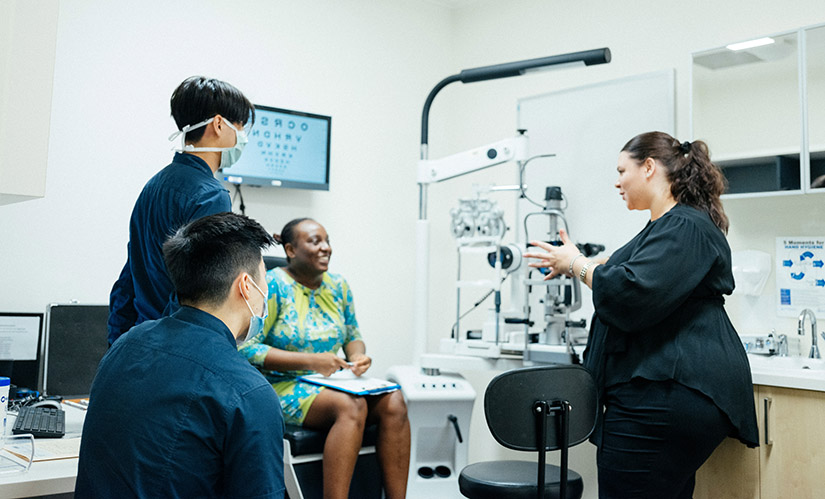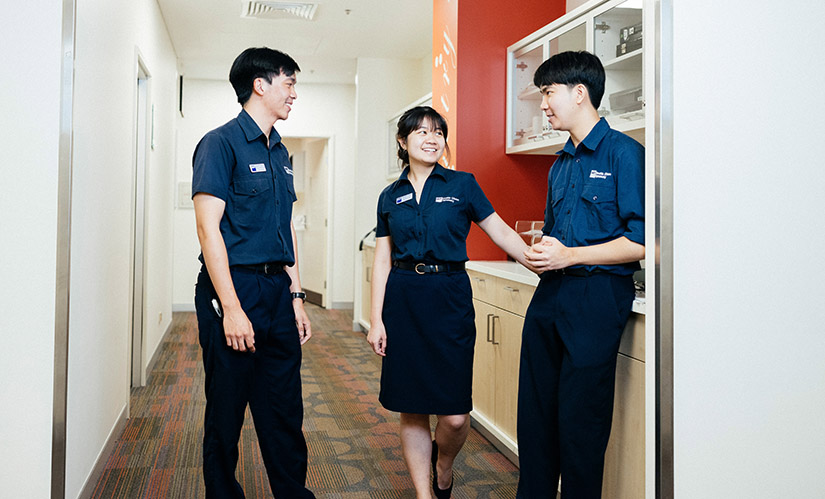
Jervis Tu, 26 May, 2022
Jervis Tu shares his experience of studying vision science and optometry at QUT.
I felt that optometry would be a fulfilling career choice as I could use problem-solving skills to directly impact another person’s life. I think a career preserving patients’ vision, while also detecting and managing potentially sinister sight threatening conditions, would be satisfying.
I chose to study at QUT due to the amazing facilities and the chance to learn under some of the most well-known vision optometry researchers in the world. QUT is also widely recognised and reputed as being a university with a strong emphasis on developing practical and real-world skills, which appealed to me. Studying at QUT also had the advantage of allowing me to stay close to all my friends and family.
So far I’ve particularly enjoyed the units where we develop practical skills. Learning from knowledgeable and experienced optometrists has helped me develop my clinical and interpersonal skills. I also particularly enjoyed our research units, as they helped frame our critical thinking when critiquing various journal articles that could potentially affect patient management.

The hands-on skills that we learn are directly applied in our 4th year clinic units, in real patient treatments.
Working at the QUT Health Clinics has been a wonderful experience as it gives us the opportunity to hone our practical skills and discover rare conditions without monetary pressure and time constraints. Industry connections with some of the biggest optical companies such as CooperVision and Specsavers have made me appreciate the work that all those involved in optometry, rather than simply seeing optometry as a rudimentary solution such as glasses. These connections have made me realise the importance of developing my practical skills to ensure high-quality eye care. Learning and training under some of the best optometrists in Brisbane will help with future employability.
A highlight of my student experience has been forming connections with fellow students and recognised researchers.
I’ve been involved in the Vision Science peer program, where students in the year below me could attend sessions where they could practice their clinical skills or ask general questions about the content or my experience as an older colleague. Not only did it feel like I was positively affecting another student’s experience, it helped consolidate my own knowledge and skills.
Going to student organised events I was able to expand my connections with other year levels to understand their current experiences and what to look out for. Also working under one of the most recognised researchers in the field of contact lenses; A/Prof Stephen Vincent was a highlight. It has been enjoyable working with him on a research project which could potentially have clinical significance in the near future.

My advice to future vision science and optometry students?
Whenever you’re having trouble with assessment and understanding lecture material, don’t be afraid to ask the lecturer or unit coordinators. They are the experts in the field and should be able to easily answer any question about the topic. Also, try to make as many connections with your peers in not only your year level but other year levels. Some of these connections you build during your university days could develop into professional collaborative relationships in the future. Also, try to attend as many corporate events as possible. Not only would you be educated on specific areas of your field of study, but you can also develop connections that could help with employability in the future.
